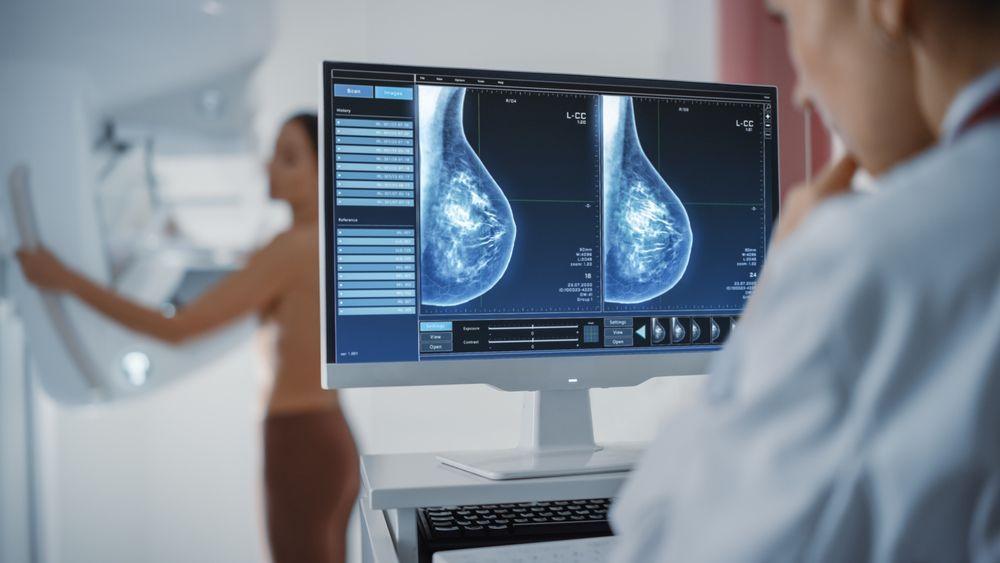The OSCE Medical Examination for Physicians - A Guide to Passing
Are you planning to take clinical exams to obtain a licence to practise medicine? Here is our quick Guide to the Objective Structured Clinical Examination (OSCE) which is now an integral component of exams.
Objective Structured Clinical Examinations, or short OSCEs, started out as part of the curriculum at medical schools and universities but have since found popularity in all branches and areas of clinical assessment. If you are looking to relocate your medical career and seek to register with a professional regulatory authority in a different country, there is a fair chance you will be required to undergo OSCE examinations to demonstrate you are fit for the medical licence to practise.
Being a relatively new clinical assessment, you may not have encountered OSCEs before. Any sort of examination can cause nervousness and even more so if you are not familiar with the process. Our guide is here to help you get an idea of what to expect and how to prepare for your OSCEs.
What are OSCEs?
The term OSCE was first mentioned in 1975 in the British Medical Journal, a leading medical journal in the UK published by the British Medical Association. The OSCE was promoted as a standardised method for the evaluation of clinical skills and competencies. Since that date, the OSCE has been widely adopted by universities, medical schools and professional regulatory authorities worldwide and continues to evolve to reflect developments in medicine and education.
The OSCE presents a candidate with a range of clinical medical scenarios which the candidate must use to demonstrate competency in a full range of patient management skills:
- Diagnostic - patient history assessment, clinical examination, evaluation of investigation results, formulation of a differential diagnosis
- Management - formulation of a management plan including investigations (radiological and pathological), surgical, medical and psychiatric treatments, appropriate follow up
- Communication - ability to communicate concisely and clearly with patients and medical colleagues
- Clinical knowledge of common medical disorders and their management.
OSCEs are deemed to be an objective, thorough, fair and accurate method of physician assessment. The range of clinical scenarios, skills and knowledge tested is broad and candidate scores are based upon evaluations from multiple examiners rather than just a single one. Unlike more traditional medical exams, OSCEs allow for assessments of the areas most critical to performance of healthcare practitioners such as communication skills and the ability to handle unpredictable patient behaviour.
Top Tip: The website Medi Students provides information on OSCEs in different specialist areas and is a great place to find details on the assessment in your field of practice.
How are OSCEs implemented?
A candidate undertaking the OSCE exam passes through a series of stations in sequential order. The number of stations can vary, but as a standard, between 10 to 18 is considered an appropriate number to ensure both objectivity and an accurate assessment. At each of these stations, the candidate is presented with a distinct clinical scenario for evaluation and management.
The clinical scenarios are acted out in role play by mock patients (these are usually actors, but mannequins can also be used). The candidate is assessed by a different examiner at each station and receives a score based upon performance and the examiner’s professional evaluation.
Each station routinely assesses multiple aspects of a candidate’s clinical competence across communication, clinical examination, medical procedures/prescription, exercise prescription, joint mobilisation/manipulation techniques and interpretation of results. For example, a scenario might be: ‘A 44-year-old man presents himself with a complaint of headaches. Obtain a complete history of this complaint.’ Stations can stand entirely on their own, but individual stations can also be linked together around a scenario, known as APIE (a station each for assessment, planning, implementation, and evaluation).
Prior to entering a station, the candidate is given information about the upcoming scenario and is allowed two minutes to prepare. The information provided will usually outline the age and gender of the patient they are about to meet in the station as well as the medical complaint presented.
A station can vary in length, commonly lasting anywhere between five and 15 minutes. A longer time may be given if a scenario is particularly complex or requires a demonstration of skill that simply cannot be completed within the usual timeframe.
Top Tip: The You tube channel IELTS Medical UK offers a range of information videos which give you a feel for what to expect on exam day. We particularly recommend this video of an OSCE actress speaking about how she presents different patients, how candidates frequently act, and what is usually expected from a candidate in a specific scenario.
Preparing for OSCEs
As with any exam, your best way to prepare is to practise and to study. Friends or family may be willing to help you out and can act as a mock patients in different medical scenarios – you can easily find example cases (see top tip below) to either work through on your own and theoretically consider how you would handle the situation or to actually act out and practise with a volunteer. Not only does this help you familiarise with what you will be facing in the actual exam, it will also establish your strengths and weaknesses. If you come across a scenario or even just an aspect of a scenario that you don’t feel particularly confident with, this is where you perhaps want to get the textbook out again.
There are some skills that you cannot polish quite so easily though, such as taking blood or mobilising patients. A lot of hospitals and universities have clinical skills labs where it is possible to practise these and similar treatments in a safe and controlled environment. It is always worth enquiring if such a possibility is available at your current place of work or at a medical education partner institution.
If preparing within the confines of your everyday environments does not give you the confidence you need to tackle your exam, you can even book a ‘Mock OSCE’ This practice assessment replicates the OSCE format – time-constraint and station-based – and is staged online with candidates, actors/mock patients, and examiners logging onto a web-based platform using a webcam and microphone. Participants receive instant results and personalised feedback.
Most importantly, try to not get too stressed about the exam. If you are relocating and undertaking OSCEs to register for a professional regulatory authority in a different country, there is a good chance that you have already been practising medicine for a while and you can anticipate that you will encounter nothing in the exam that you would not encounter during your everyday practice. You can be confident that you will have the skills and experience to handle these situations and all you have to do on the day is demonstrate how you do your job.
Top Tip: A number of online resources provide OSCE stations example cases, many even including candidate, patient, and examiner instructions. This is an ideal way to familiarise yourself with the type of scenarios you might encounter and to get an idea of what examiners are looking for. A possible place for you to start with example cases is the dedicated website OSCE Stop or the medical education page Geeky Medics.
How are OSCEs graded?
Candidates are scored against various specific or more generic criteria at each station based on a structured marking scheme. The examiners will mark a candidate’s score as the scenario plays out at the station, either on paper or digitally depending on the institution holding the OSCE.
The approach to calculating an OSCE grade can differ from institution to institution. A Borderline Regression Analysis (BRA) is prominently used to better incorporate the different degrees of difficulty of the individual stations, as well as the professional opinion of the examiners into the score. Many institutions allocate each station an individual pass mark with the sum of the pass marks off all the stations determining the overall pass mark for the OSCE. It is also common practice to impose a minimum number of passed stations as a requirement.
Top Tip: Since grading and scoring approaches can differ between institutions, make sure to check with the host of your OSCEs what the requirements are prior to undertaking the assessment. You will of course want to do your best regardless, but it is always useful to know what the threshold is.
Share this post on Social Media
Leave a Comment
SEARCH JOBS
Ready for a change? Whether you’re looking for higher compensation, greater autonomy, a better work-life balance, or just a change in scenery, we have job opportunities in wonderful locations across the world. Start your medical or dental job search today and embark on your next career move.
SIGN UP FOR JOB ALERTS
We believe everyone deserves to find their dream job. Be the first to hear about new practice opportunities in exciting locations across the world Simply sign up for job alerts in your chosen field, and we will email you when a new job in your specialty becomes available.
More Insights












